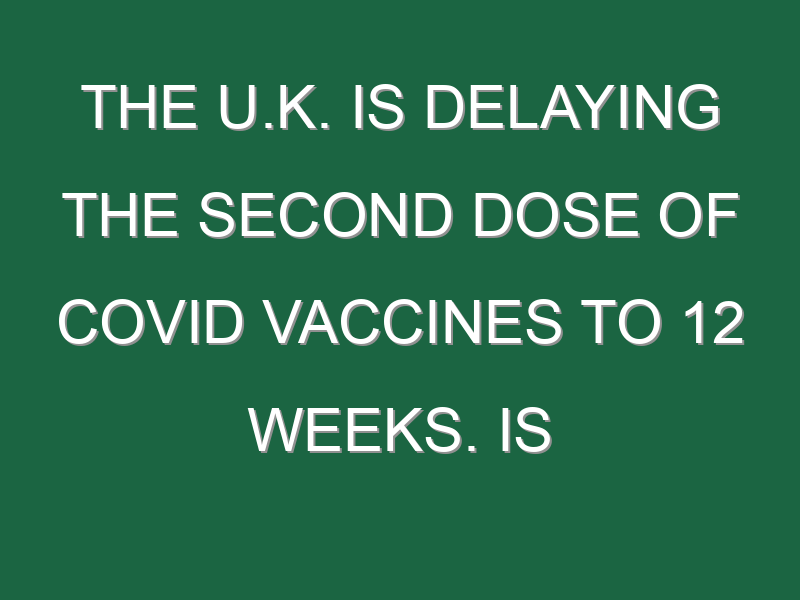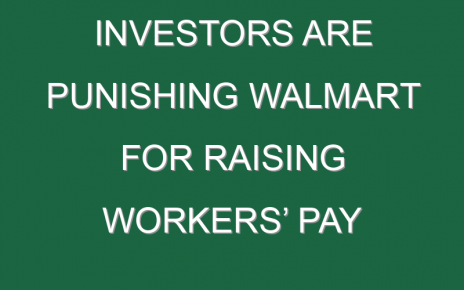Our mission to make business better is fueled by readers like you. To enjoy unlimited access to our journalism, subscribe today.
Going off your meds is a surefire way to aggravate your doctor. What if a whole country did it?
The United Kingdom has veered into uncharted territory by changing tack, and introducing a revised COVID-19 vaccination protocol, one that involves distributing the second dose at 12 weeks, rather than the prescribed 21 days.
It’s a move being watched the world over.
British health officials say that it’s the best way to apportion a limited number of doses and contain a deadly wave of contagion that has pushed the country into a series of extended lockdowns and has overwhelmed hospitals in the past month.
There’s a big problem with the plan, however. There’s scant clinical evidence that a 12-week gap will be as effective as a 21-day one. That alone, a growing number of health experts say, makes it risky.
“I would not recommend extending the time for the second dose because there is no clinical data to support it,” Dr. Paul Offit, a prominent pediatrician and vaccine researcher at the Children’s Hospital of Philadelphia, told Fortune. “We just don’t know for certain how long immunity lasts from a single dose beyond the four weeks.”
There are practical concerns, too: Offit said he was concerned the delay might mean more people fail to get a second dose at all, ultimately undermining efforts to end the pandemic—even as the number of doses on offer will likely explode this spring as more and more vaccines are authorized.
The vaccine makers themselves are staunch opponents of the U.K.’s decision to space out the doses, warning too of the lack of firm data; the World Health Organization, for its part, recommended on Jan. 8 that the wait between the first and second doses should be no longer than six weeks.
In the U.S., Anthony Fauci, the director of the National Institute of Allergy and Infectious Diseases in the U.S., told CNN in early January that “we want to stick with what the science tells us”—in other words, not deviating from the 21-day window.
“We make decisions based on data. We don’t have any data of giving a single dose and waiting for more than the normal period of time [for the second dose],” he said.
The COVID crisis in the U.S. is no better than it is in the U.K. For now, the plan there is to attack the problem by ramping up supply. On Tuesday, the Tump Administration agreed to release all the doses it’s been stockpiling, essentially matching a vow President-elect Joe Biden had made to release the entire current cache of doses once he takes office.
Other countries, including Germany and Denmark, have reportedly looked into whether stretching out the second dose would buy them time. For now, they’re sticking to the prescribed rules.
Death tolls climbs
The United Kingdom recently surpassed 80,000 COVID deaths, the most in Europe, as a highly contagious variant of the virus creeps through towns, cities and villages.
The government determined last month that one way to slow the contagion, and reduce the impact on overburdened hospitals, would be to tinker with the dosage regimen. The decision triggered a fierce scientific and policy debate, weighing up a lack of data on whether it is safe or sensible to use vaccines “off book”—and desperate circumstances that some say merit efforts to save as many lives as possible.
“We calculate this move will maximize the reductions in hospitalization and death which has to be our current focus. It is biologically plausible that delay (not cancellation!) of the second dose will not leave recipients undefended,” said Robert Read, a professor of infectious diseases at the University of Southampton, and a member of the U.K. Joint Committee for Vaccination and Immunisation.
Of course, “biologically plausible” is not a standard likely to inspire a fantastic degree of public confidence. But the predicament the U.K. finds itself in, with skyrocketing infection and hospitalization rates, has turned a public health dilemma into an ethical one.
“This is not a simple problem,” added Stephen Evans, a professor of pharmacoepidemiology at the London School of Hygiene and Tropical Medicine, commenting on the U.K.’s decision last week. “The idea that there is a definite clear-cut answer is not true because respected scientists differ in their views.”
What the data says
The Pfizer BioNtech vaccine trials did not compare variations in dosing regimens, noted a paper published in the BMJ, the British medical journal, while trials from the Oxford AstraZeneca vaccine suggested a longer gap could in fact improve immunity—but the numbers of people on which that gap was tested is small.
There’s a potential saving grace: the vaccines, by traditional measures, are remarkably potent. While the Pfizer and BioNTech vaccine, for example, requires two doses to achieve 95% effectiveness, the success of the first dose is still 52%, according to the vaccine’s trials.
And, in a crisis, even that reduced efficacy can do plenty of good. “When resources of doses and people to vaccinate are limited, then vaccinating more people with potentially less efficacy is demonstrably better than a fuller efficacy in only half,” said Evans, at the London School of Hygiene and Tropical Medicine.
But it’s not so cut-and-dried. There are warnings that the success of waiting longer to administer a second dose may vary widely, based on the vaccine itself. The Oxford-AstraZeneca vaccine, and others which rely on a viral vector to provide immunity, may in fact benefit from a longer wait between two doses; but RNA-based vaccines like the Moderna and Pfizer vaccines could have fundamentally different responses, according to scientists.
Such potential differences may mean that the smartest approach would be to vary time between doses, not just based on the vaccine, but the recipient, argues Stephen Griffin, an associate professor in the school of medicine at the University of Leeds. For example, it may mean sticking as close as possible to the trial-determined 21-day window that the Pfizer-BioNTech vaccine calls for for, say, a more vulnerable patient while allowing for more flexible ranges for other healthier ones.
However, that would be an approach that allowed for some level of flexibility—something that desperate governments, struggling with death rates and vaccine shortages, may be perilously low on, as well.
More health care and Big Pharma coverage from Fortune:
- Vaccinating the world against COVID is off to a slow start. These firms think A.I. and blockchain could help
- Timeline: From the first coronavirus cases to the first vaccinations
- It’s the New Year, and pharma companies are already hiking prices for popular drugs
- Commentary: In the COVID vaccine rollout, our expectations don’t match reality
- The COVID recession may kill more Americans than COVID-19 does





